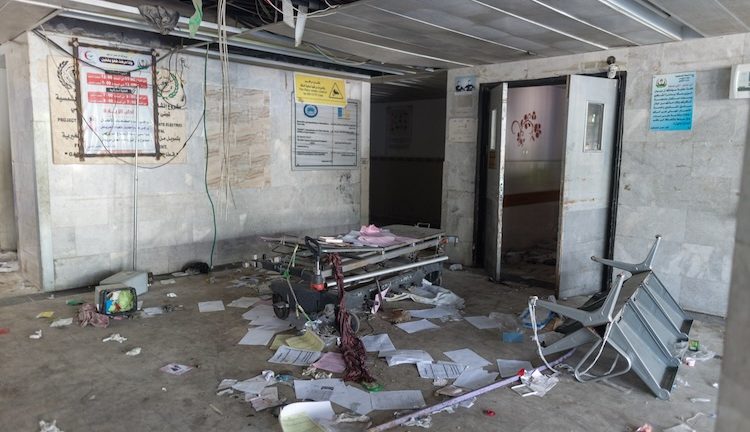By Jaya Ramachandran
GENEVA | 3 May 2024 (IDN) — The World Health Organization (WHO) has called for respecting “the sanctity of health care”, adding that “parties to the conflict have the coordinates of health facilities”. These must be actively protected and remain accessible to patients, health workers and partners. “The safety of health and humanitarian workers must be guaranteed. Those striving to save lives should not have to endanger their own.”
The United Nations agency to promote health has warned of a “bloodbath” if Israel launches “a full-scale military operation” in Rafah. More than 1.2 million people are currently sheltering in the area. Many are unable to move anywhere else.
Besides, further displacement would exacerbate overcrowding, restricting access to food, water, health and sanitation services, leading to increased disease outbreaks, worsening levels of hunger, and additional loss of lives.
Only 33 per cent of Gaza’s 36 hospitals and 30 per cent of primary health care centres are functional in some capacity amid repeated attacks and shortages of vital medical supplies, fuel, and staff.
WHO and its partners are focusing on restoring and resuscitating health services, including expanding services and pre-positioning supplies. However, the broken health system would not be able to cope with the upwelling in casualties and deaths that a Rafah incursion would cause.
“The three hospitals (Al-Najjar, Al-Helal Al-Emarati and Kuwait hospitals) currently partially operational in Rafah will become unsafe to be reached by patients, staff, ambulance, and humanitarians when hostilities intensify in their vicinity and, as a result quickly become nonfunctional,” warns WHO.
WHO fears that the European Gaza Hospital in east Khan Younis, which is currently functioning as the third-level referral hospital for critical patients, is also vulnerable as it could become isolated and unreachable during the incursion. Given this, the south will be left with six field hospitals and Al-Aqsa Hospital in the Middle Area, serving as the only referral hospital.
Ongoing Emergency Efforts
As part of ongoing emergency efforts, WHO, partners and hospital staff have completed the first phase of the restoration of Nasser Medical Complex, including cleaning and ensuring that the essential equipment is functioning. The emergency ward, nine operating theatres, intensive care unit, maternity ward, neonatal intensive care unit and the outpatient department are now partly functional, and national staff alongside emergency medical teams are working there.
To relieve the burden on hospitals, WHO and partners are establishing additional primary health centres and medical points in Khan Younis, Middle Area, and northern Gaza as well as pre-positioning medical supplies to enable these facilities to detect and treat communicable and non-communicable diseases and manage wounds. A new field hospital is being set up in Al Mawasi in Rafah.
WHO has set up a warehouse in Deir al Bala and moved a sizable volume of medical supplies from the warehouses in Rafah, should these become unreachable during the incursion. WHO expects these measures to ensure the rapid movement of supplies to Khan Younis, Middle Area and northern Gaza when needed.
In the north, WHO and partners are scaling up efforts to resupply and expand services at Kamal Adwan, Al-Ahli, and Al-Awda hospitals, along with supporting the transfer of very ill patients to hospitals where they can get the treatment they need to survive. Plans are also underway to support the restoration of Patients’ Friendly Hospital, focusing on paediatric services. [IDN-InDepthNews]
Photo: WHO and partners visited hospitals in Khan Yunis in Gaza and saw utter devastation: infrastructure destroyed, vital medicines and equipment missing or damaged. © WHO


